Victim (1961)
“It used to be witches; at least they don’t burn you.”
|
Synopsis: |
|
Genres, Themes, Actors, and Directors:
Response to Peary’s Review: He spends much of the rest of his review citing a critic from Films in Review when the film was released, who complained that “the biological, social and psychological evils resulting from homosexuality are never mentioned” and “the false contention that homosexuality is congenital is stressed throughout” (!!); Peary notes that this “gives us some idea how far ahead of its time this picture was,” and tells about watching the cut version for years on TV, “in which, remarkably, homosexual references are excised” — meaning that “for years [he] had no idea what this picture was about.” Peary doesn’t specifically highlight Bogarde’s performance in his review, but he should; Bogarde (semi-closeted in real life) is note perfect in a role that he was apparently eager to play. What’s most refreshing about the storyline is that Bogarde’s character doesn’t shy away from facing the truth of his sexuality: we learn that he was upfront with his wife before they got married, and after he finds out about McEnery’s tragic end, he vows to investigate and seek justice, despite the risk this poses to both his career and his marriage. Knowing that homosexuality was illegal in Britain until 1967 under the Sexual Offenses Act, one is grateful to this film for showing just a glimpse of what life was like for many during that time. Notable Performances, Qualities, and Moments:
Must See? Categories
Links: |
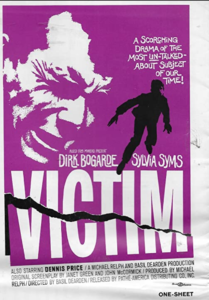
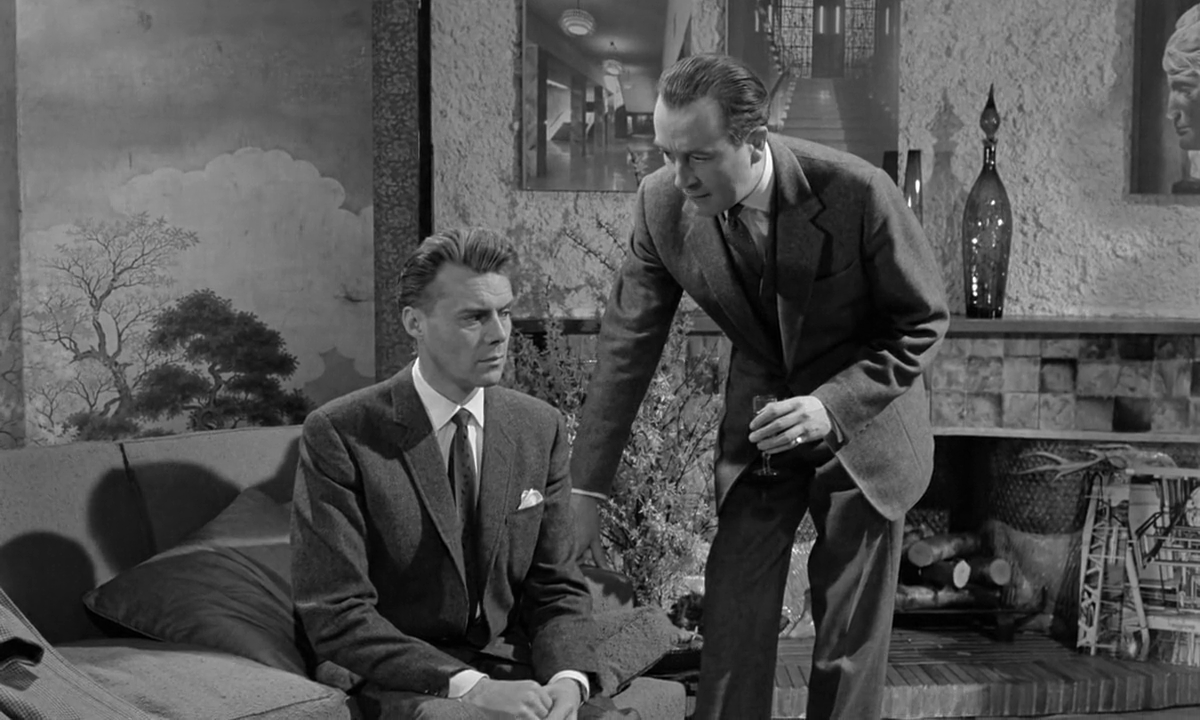
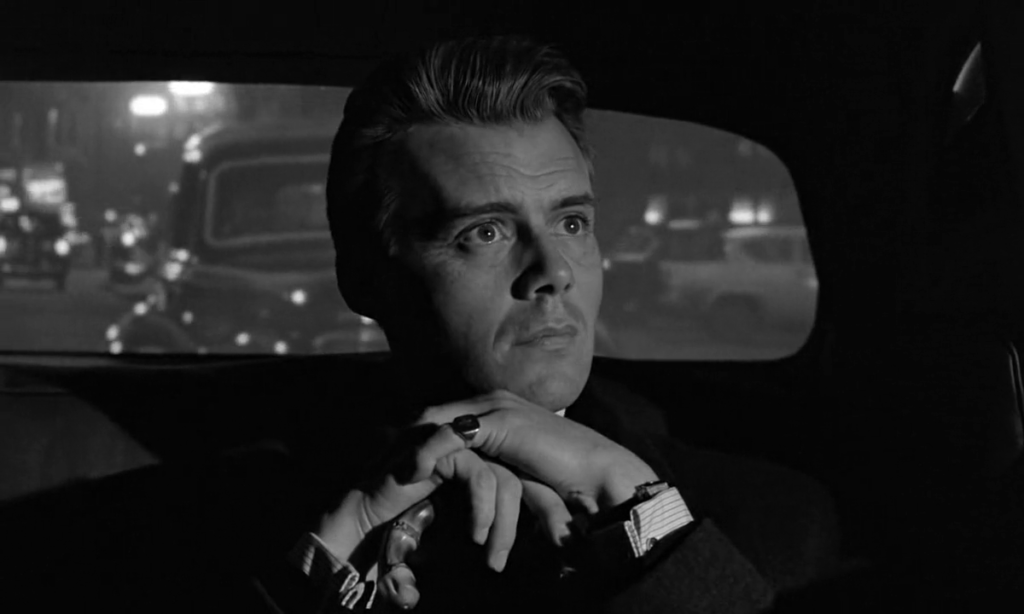
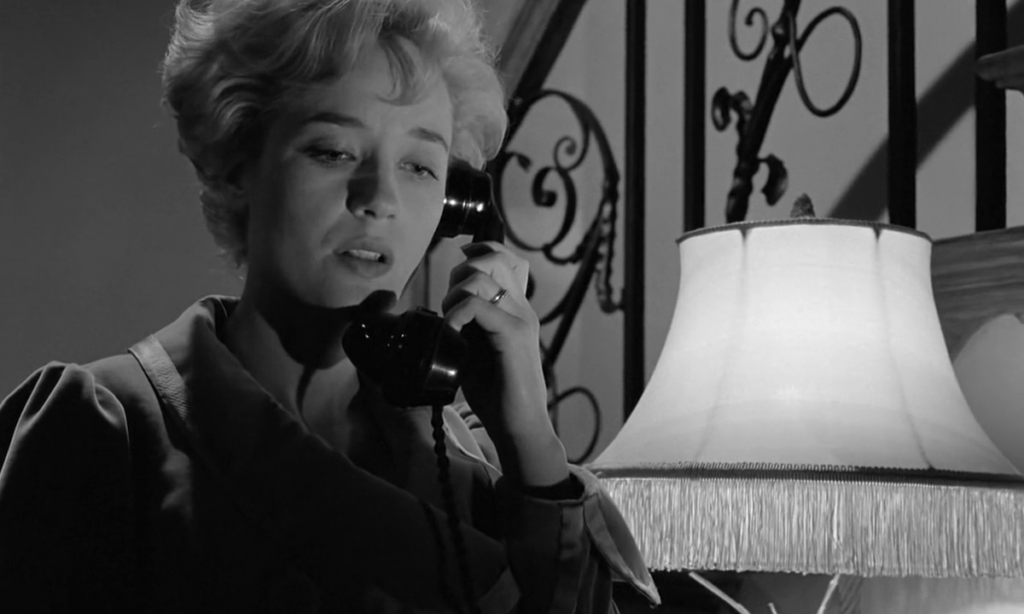
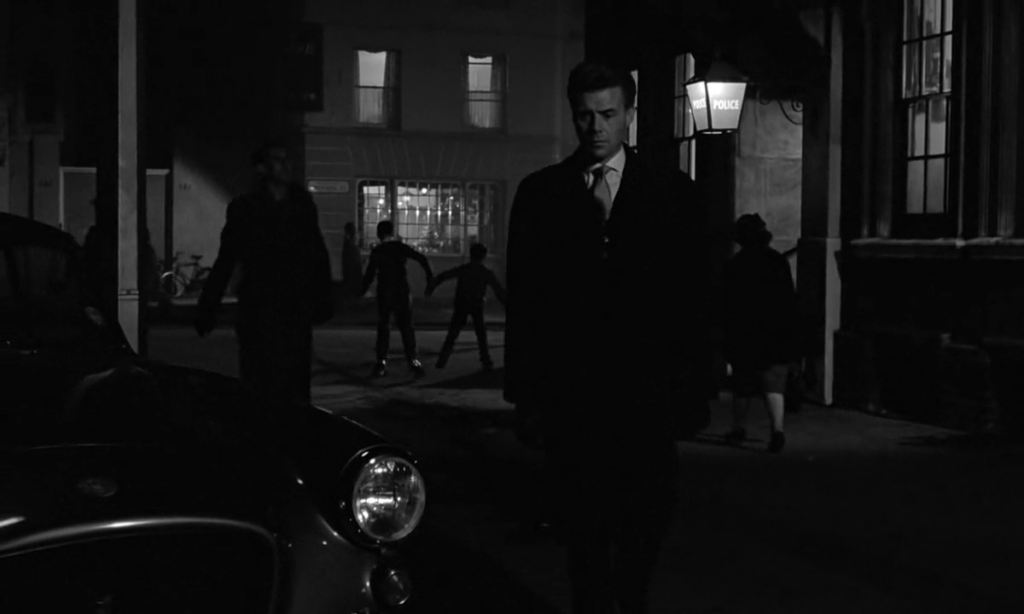
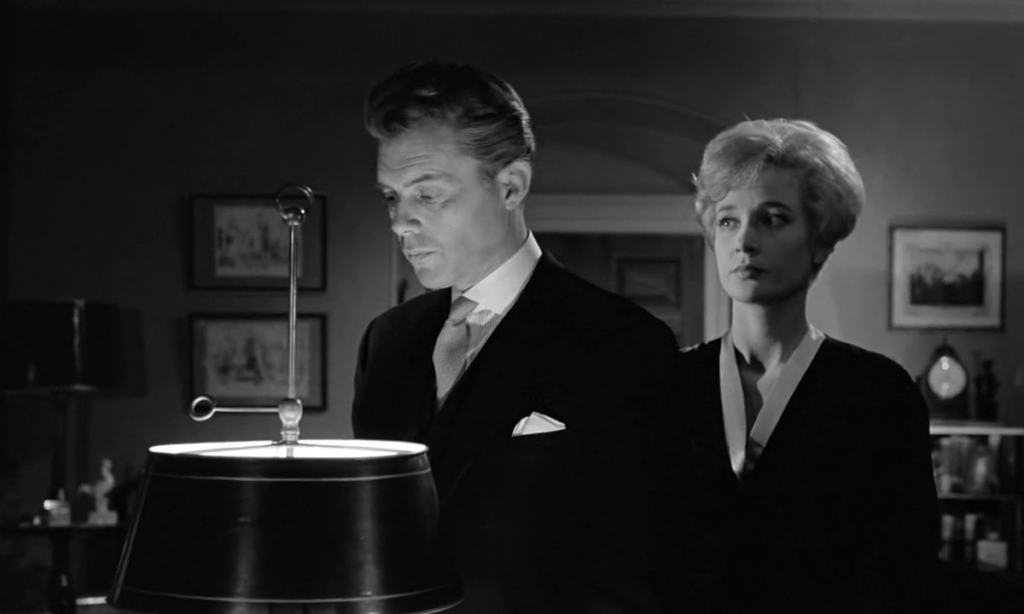
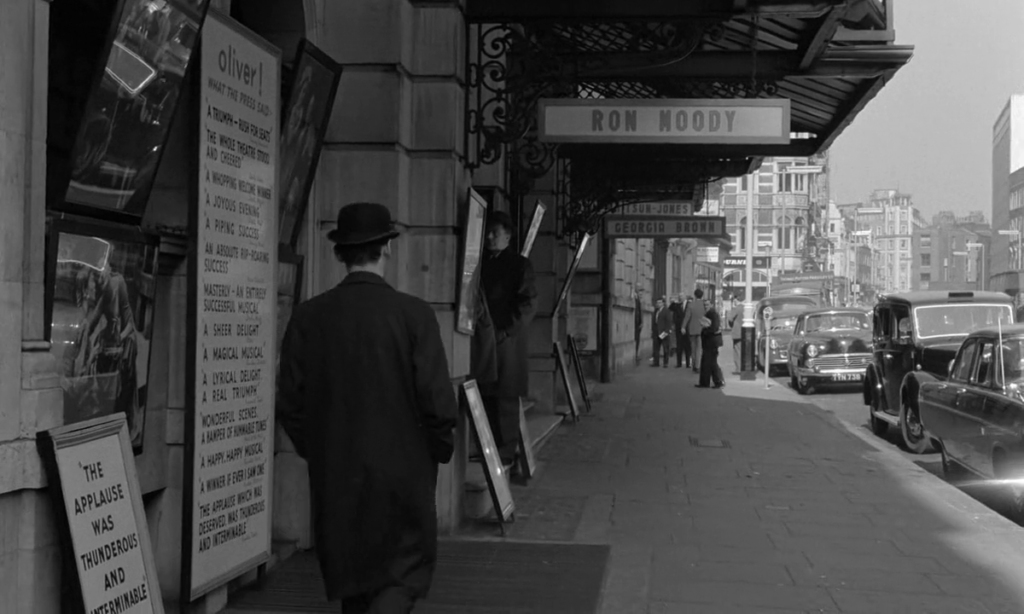
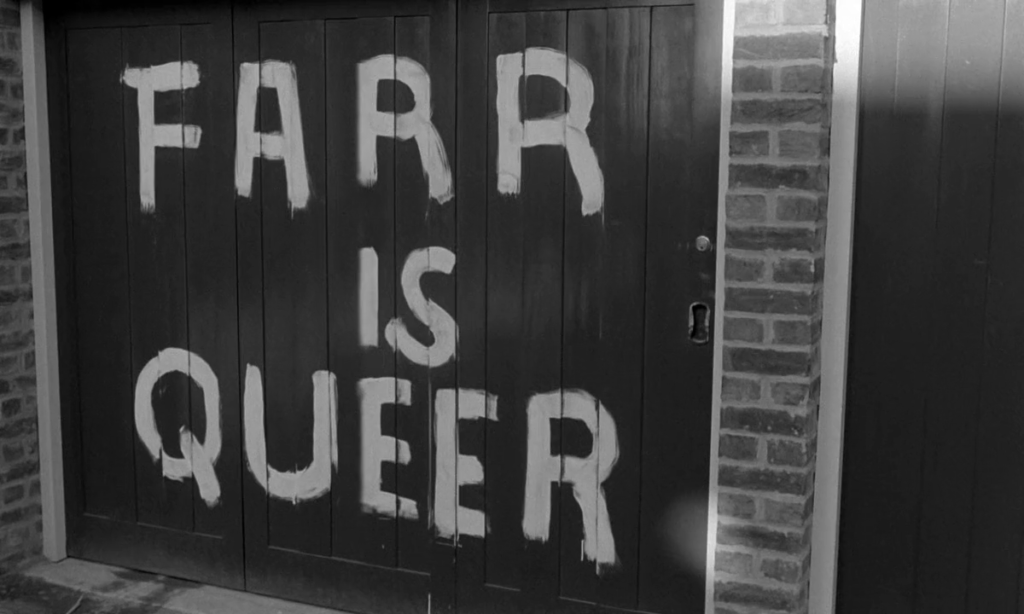
One thought on “Victim (1961)”
Must-see, as an important breakthrough film in cinema history. (Unlike Peary, I would not classify Bogarde’s character as a man “with a homosexual past”. The film goes to some length in detailing Bogarde’s Farr as a man with same-sex feelings that were never acted upon. Regarding the one previous man that his wife did know about, Farr explains that what curtailed activity with him was the fact that the guy was much too effusive. However, it seems that Bogarde’s attraction to men continued to grow – the result being that, re: McEnery’s character, Farr finally allows himself to admit to his wife: “I wanted him!”)
As per my post today in ‘GMO40’ (fb):
“Well, it used to be witches. At least they don’t burn you.”
‘Victim’ (1961): I hadn’t seen this flick in too many years so I decided to give it another look. Primarily known as the first English-language film to use the word “homosexual”, its significance goes way beyond that. Seeing it again, I was struck by how fast-moving the film is (aided by very economic screenwriting; quite a few scenes are extremely brief, as they’re designed to put forth only the most necessary info).
As for the plot: At a time in the UK when men could still be imprisoned if caught having sex together, a small group of blackmailers is at-large. The group has latched onto a ‘network’ of men who may or may not know each other. Among them is a young man (Peter McEnery) now desperate to keep up with extortion payments. The young man turns to a recent acquaintance – a barrister (Dirk Bogarde) – who (with fears of his own) misunderstands why he is being contacted and blocks all communication. Things turn ugly as the blackmailers gain strength.
Director Basil Dearden had, around that time, moved into making ‘social justice’ films and had previously worked with writer Janet Green on a film about racism (‘Sapphire’). Green had become a supporter of homosexual law reform (which would eventually happen in 1967) and wrote the powerfully sharp and insightful script for ‘Victim’ with her husband John McCormick.
At that point in his career, Bogarde was so popular and well-respected that he apparently thought the leading role (someone attracted to men who seemingly has never acted on his feelings) would not hurt his reputation. He said, “It was the wisest decision I ever made in my cinematic life.” McEnery, nine years later, appeared as the bisexual object of lust in the film of Joe Orton’s ‘Entertaining Mr. Sloane’.
In a significant supporting role is Dennis Price, best known for his work in the hilarious classic ‘Kind Hearts and Coronets’.
———————
NOTE: A GMO40 member brought it to my attention that, although being homosexual was legalized in 1967, the scope of the reform was limited and men were still prosecuted into the ’80s for open behavior.